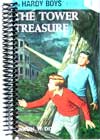 As surely as The Wizard of Oz hits the cable channels each October, Willy Wonka and the Chocolate Factory plays every Christmas season.
As surely as The Wizard of Oz hits the cable channels each October, Willy Wonka and the Chocolate Factory plays every Christmas season.
As a child, I liked the trippy 1971 film but as an adult I like the timeless movie even more. Watching Wonka last night, I’ve come to love Gene Wilder’s mocking nerve, and appreciate the zingers aimed at overindulged children and their pathetic parents. And I have finally have caught the shower of literary references.
The classic film is sprinkled with great words from Ogden Nash, William Shakespeare, Oscar Wilde, Arthur O'Shaughnessy, John Keats, and Lewis Carroll.
Proving that words really do produce ripples of influence, Willy Wonka is peppered with poetry from the past. In turn, Wonka went on to influence scores of new artists.
For example, the first lines of a poem by British poet Arthur O'Shaughnessy are spoken by Wonka:
Willy Wonka: "The strawberries taste like strawberries. The snozzberries taste like snozzberries."
Veruca Salt: "Snozzberries? Who ever heard of a snozzberry?"
Willy Wonka: "We are the music makers... and we are the dreamers of dreams."
Ode – once experienced in Willy Wonka -- went on to inspire countless creatives. The first two lines have been used as an album title for Joy Electric, and for a track by Aphex Twin. A New York band even dubbed itself We Are the Music Makers.
The O'Shaughnessy poem comes from the collection Music and Moonlight, published in 1874. Ode is often quoted, but rarely provided in its entirety.
Ode
Arthur O'Shaughnessy
We are the music makers,
And we are the dreamers of dreams,
Wandering by lone sea-breakers,
And sitting by desolate streams;—
World-losers and world-forsakers,
On whom the pale moon gleams:
Yet we are the movers and shakers
Of the world for ever, it seems.
With wonderful deathless ditties
We build up the world's great cities,
And out of a fabulous story
We fashion an empire's glory:
One man with a dream, at pleasure,
Shall go forth and conquer a crown;
And three with a new song's measure
Can trample a kingdom down.
We, in the ages lying
In the buried past of the earth,
Built Nineveh with our sighing,
And Babel itself in our mirth;
And o'erthrew them with prophesying
To the old of the new world's worth;
For each age is a dream that is dying,
Or one that is coming to birth.
A breath of our inspiration
Is the life of each generation;
A wondrous thing of our dreaming
Unearthly, impossible seeming—
The soldier, the king, and the peasant
Are working together in one,
Till our dream shall become their present,
And their work in the world be done.
They had no vision amazing
Of the goodly house they are raising;
They had no divine foreshowing
Of the land to which they are going:
But on one man's soul it hath broken,
A light that doth not depart;
And his look, or a word he hath spoken,
Wrought flame in another man's heart.
And therefore to-day is thrilling
With a past day's late fulfilling;
And the multitudes are enlisted
In the faith that their fathers resisted,
And, scorning the dream of to-morrow,
Are bringing to pass, as they may,
In the world, for its joy or its sorrow,
The dream that was scorned yesterday.
But we, with our dreaming and singing,
Ceaseless and sorrowless we!
The glory about us clinging
Of the glorious futures we see,
Our souls with high music ringing:
O men! it must ever be
That we dwell, in our dreaming and singing,
A little apart from ye.
For we are afar with the dawning
And the suns that are not yet high,
And out of the infinite morning
Intrepid you hear us cry—
How, spite of your human scorning,
Once more God's future draws nigh,
And already goes forth the warning
That ye of the past must die.
Great hail! we cry to the comers
From the dazzling unknown shore;
Bring us hither your sun and your summers;
And renew our world as of yore;
You shall teach us your song's new numbers,
And things that we dreamed not before:
Yea, in spite of a dreamer who slumbers,
And a singer who sings no more.
 Paging through the dictionary is like looking through a microscope. Every word breaks down into parts with unique properties — prefix, suffix, root. Eliza gleans not only the natural laws that govern the letters but their individual behaviors. R, M, and D are strong, unbending and faithful. The sometimes silent B and G and the slippery K follow strident codes of conduct. Even the redoubtable H, which can make P sound like F and turn ROOM into RHEUM, obeys etymology. Consonants are the camels of language, proudly carrying their lingual load.
Paging through the dictionary is like looking through a microscope. Every word breaks down into parts with unique properties — prefix, suffix, root. Eliza gleans not only the natural laws that govern the letters but their individual behaviors. R, M, and D are strong, unbending and faithful. The sometimes silent B and G and the slippery K follow strident codes of conduct. Even the redoubtable H, which can make P sound like F and turn ROOM into RHEUM, obeys etymology. Consonants are the camels of language, proudly carrying their lingual load. Friday, December 19, 2008 at 10:20AM
Friday, December 19, 2008 at 10:20AM  Post a Comment |
Post a Comment | 


